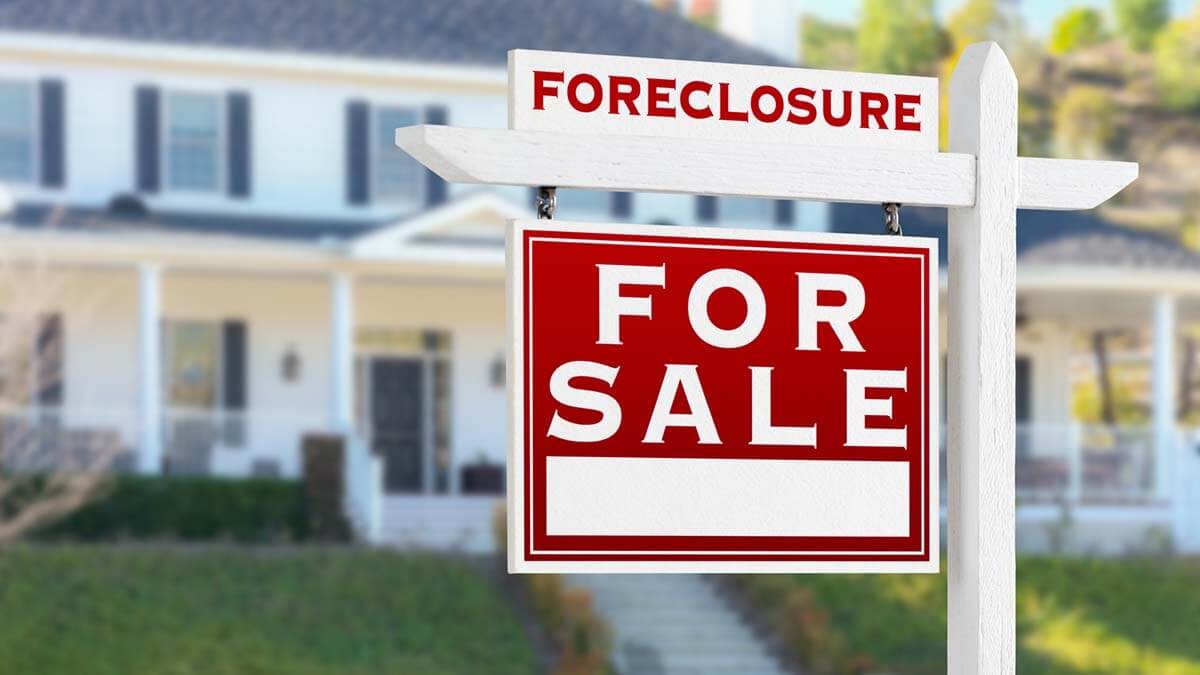When facing foreclosure, every moment counts. If you’re behind on mortgage payments or foresee a struggle ahead, acting fast can make all the difference. Foreclosure is a serious process where the bank claims ownership of your property due to missed mortgage payments, potentially leaving you without a home and impacting your financial future. The sooner you take steps to address it, the more options you’ll have to keep control of your situation.
At iBuyer.com, we understand the urgency of this challenge, which is why our services focus on providing a quick, straightforward solution. iBuyer offers a hassle-free way to sell your home quickly, avoiding the stress of traditional sales and the complications that come with foreclosure. If you’re worried about keeping up with payments, exploring iBuyer’s services could be the first step toward a fresh start.
Take control of your situation today—learn more about your options and see if iBuyer can help you regain your financial footing before foreclosure takes its toll.
Compare Cash Offers from Top Home Buyers. Delivered by Your Local iBuyer Certified Specialist.
One Expert, Multiple Offers, No Obligation.
How to Stop Foreclosure
Understanding the Foreclosure Process
Foreclosure can feel overwhelming, but understanding how it works can make the process easier to manage. Foreclosure happens when a homeowner misses multiple mortgage payments, and the lender takes action to recover the money by selling the property. This process varies by state, but typically, the bank or lender files a notice after three to six months of missed payments, and the homeowner faces a timeline for settling the debt or facing the loss of their home.
Knowing the general timeline of foreclosure can be empowering. Early in the process, there are often more options available to prevent foreclosure. Acting quickly may allow you to negotiate payment plans, apply for financial assistance, or even sell the home to avoid further damage to your credit. The key takeaway? The earlier you take action, the more control you can maintain over your home and financial future.
Immediate Actions to Prevent Foreclosure
If foreclosure is a possibility, the first thing to do is contact your lender. While it may feel intimidating, open communication with your lender is crucial. Many lenders have programs in place to help borrowers facing financial hardship, and they may be able to offer temporary relief options, such as reduced payments or a grace period.
Another smart step is to seek a HUD-approved housing counselor. These professionals specialize in foreclosure prevention and can help you understand your rights, review your financial situation, and guide you through options that may prevent foreclosure. The U.S. Department of Housing and Urban Development (HUD) provides a list of approved counselors, so you can find a trustworthy expert to help you navigate this challenging time.
Taking these immediate actions may buy you time and give you the resources you need to work toward a solution.
Financial Assistance Programs
If you’re struggling to keep up with payments, several financial assistance programs can offer a lifeline. Federal programs, like the FHA’s Making Home Affordable program, are designed to help homeowners facing financial challenges. These programs can provide various forms of relief, such as loan modifications or interest rate adjustments, which may help make payments more manageable.
In addition to federal help, many state and local programs offer specific aid options to prevent foreclosure. These programs vary by location, so checking with your state’s housing authority or a HUD-approved counselor can help you find targeted resources. From grants and emergency loans to payment assistance, these resources can play a key role in keeping your home.
Exploring these options early can make a big difference, potentially giving you a more affordable path to stay in your home.
Alternative Solutions if Foreclosure is Imminent
When foreclosure seems unavoidable, there are still options that might offer relief. One option is loan modification or forbearance. Loan modification changes the terms of your mortgage to make payments more affordable, while forbearance temporarily pauses payments, allowing you time to regain financial stability.
Another route to consider is refinancing. By refinancing, you may secure a lower interest rate or extend the loan term, which could reduce your monthly payments. However, this option may come with added costs or higher interest over time, so it’s essential to weigh the pros and cons based on your unique situation.
If all else fails, bankruptcy can be a last resort. Declaring bankruptcy can temporarily delay foreclosure proceedings, giving you time to assess your financial situation and determine next steps. Bankruptcy can have a long-term impact on credit, so it’s wise to consider this option only if no other solutions apply.
Each of these options can provide short-term relief, and exploring them sooner rather than later may help you avoid foreclosure altogether.
Recognizing and Avoiding Foreclosure Scams
Unfortunately, homeowners facing foreclosure are often targets for scams. Knowing how to identify legitimate help can protect you from losing money and valuable time. Foreclosure rescue scams often promise “quick solutions” but charge high fees for services you could receive for free from HUD-approved counselors. Be cautious of any company asking for an upfront fee or guaranteeing results—they may not have your best interest at heart.
The safest way to avoid scams is to rely on HUD-approved counselors or other trusted, non-profit organizations. These certified professionals can provide expert guidance without any hidden fees. If you’re ever unsure about an offer, check reviews or seek a second opinion from a certified housing counselor. Protecting yourself from scams ensures that your efforts are focused on real solutions, keeping you on the path to preventing foreclosure.
Reilly’s Two Cents
I’ve helped many homeowners through foreclosure challenges over the years. I know how overwhelming this can feel, but there are actionable steps that can make a big difference. Here’s what I recommend:
- Keep communication open with your lender. Many lenders are willing to work with you if they understand your situation early on. Avoiding calls only limits your options.
- Prioritize your finances. Focus on covering mortgage payments before other expenses. Tightening your budget in the short term could be the key to keeping your home.
- Find extra income sources. Whether it’s selling unused items, taking on a part-time job, or freelancing, boosting your income can help cover payments and reduce financial stress.
Taking these steps may not seem easy, but they can bring you closer to financial stability and peace of mind. Every action counts—don’t hesitate to reach out for help when you need it.
Conclusion
Preventing foreclosure requires early action and a proactive approach. By understanding the foreclosure process, exploring financial assistance options, and connecting with trusted counselors, you can take meaningful steps to protect your home. Remember, open communication with your lender and careful financial prioritization can greatly improve your chances of finding a solution before it’s too late.
If selling your home quickly is the best option for you, iBuyer.com offers a fast and stress-free way to move forward. Our process is designed to help homeowners avoid the complications of foreclosure and find a fresh start without delay. Explore how iBuyer can support you during this challenging time—taking that first step might be exactly what you need to regain control of your financial future.
Instant Valuation, Confidential Deals with a Certified iBuyer.com Specialist.
Sell Smart, Sell Fast, Get Sold. No Obligations.
FAQ Section
A loan modification is an agreement between you and your lender to change the terms of your mortgage, making payments more affordable. This might include lowering your interest rate, extending your loan term, or reducing the principal balance. Loan modifications can be a powerful tool to help you keep your home during financial hardship.
Yes, selling your home during the foreclosure process is often possible and can help you avoid the long-term impact on your credit. A quick sale through a service like iBuyer can help you resolve the debt before foreclosure is finalized, often making it a good option if you need to avoid the stress of the process.
Yes, many states offer unique programs to assist homeowners facing foreclosure. These can include emergency loans, grants, and payment assistance programs. To learn more, check with your state’s housing authority or consult a HUD-approved counselor.
Foreclosure timelines vary by state and lender, but the process generally takes several months from the first missed payment. Early steps, like contacting your lender and seeking assistance, can help you find solutions before the process reaches critical stages.
Reilly Dzurick is a seasoned real estate agent at Get Land Florida, bringing over six years of industry experience to the vibrant Vero Beach market. She is known for her deep understanding of local real estate trends and her dedication to helping clients find their dream properties. Reilly’s journey in real estate is complemented by her academic background in Public Relations, Advertising, and Applied Communication from the University of North Florida.




